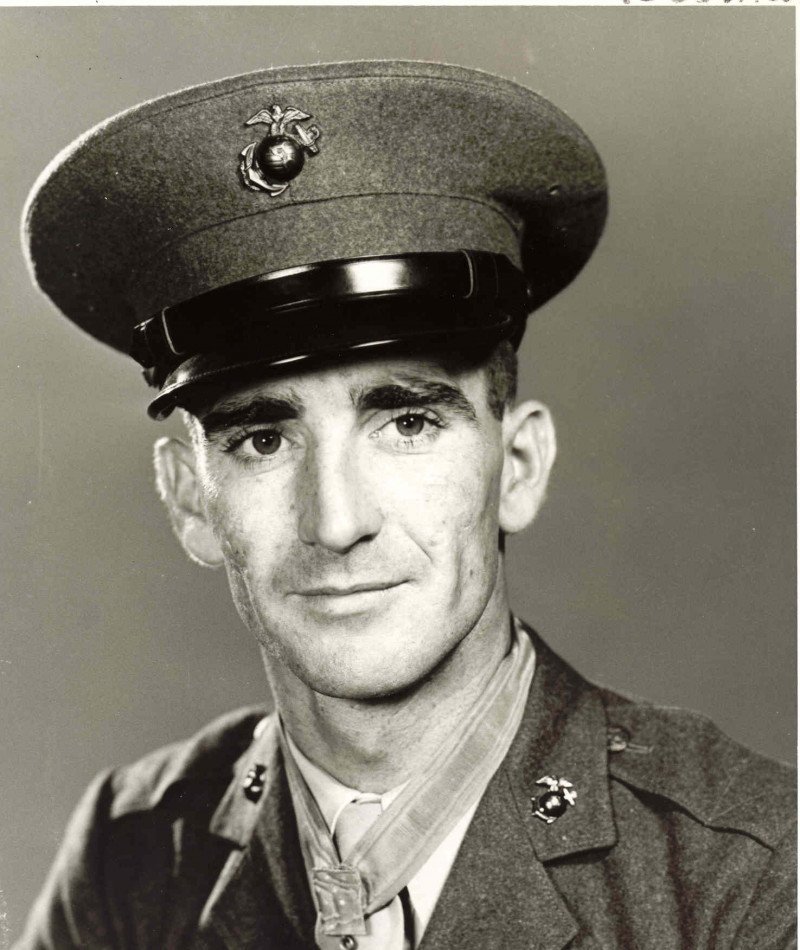Medal of Honor: Private First Class Alford L. McLaughlin, Korean War, September 4–5, 1952
The Korean hills at night were alive with fire, smoke, and steel. On the forward slopes, far beyond the main American line, a small combat outpost became the stage for an almost impossible stand.
September 5, 2025

 Private First Class Alford L. McLaughlin
Private First Class Alford L. McLaughlin
Korean War – September 4–5, 1952
The Korean hills at night were alive with fire, smoke, and steel. On the forward slopes, far beyond the main American line, a small combat outpost became the stage for an almost impossible stand. At its heart was a young Marine from Leeds, Alabama—Private First Class Alford L. McLaughlin—armed with two machine guns, a carbine, and an indomitable spirit that refused to yield.
McLaughlin was already on his second consecutive tour manning the isolated outpost. He had volunteered for it, knowing full well that the position was exposed, battered daily by artillery and mortar fire, and a prime target for enemy assaults. Still, he believed in holding the ground, and before the night fell, he had carefully prepared a defense that would prove decisive.
On the night of September 4–5, 1952, the storm broke. An enemy battalion surged forward in wave after wave, hurling grenades and pouring fire into the Marine positions. In the maelstrom, McLaughlin became a whirlwind of defiance. He alternated between two machine guns, firing until the barrels overheated and blistered his hands. When the guns grew too hot to hold, he dropped to his carbine and hurled grenades with deadly accuracy, only to return to the machine guns once they cooled enough to fire again.
Wounded and exposed, McLaughlin fought from the hip, blazing away as if possessed. He shouted above the battle, encouraging his fellow Marines, urging them to hold their ground. When the enemy pressed close, he stood tall in full view, spraying fire into the darkness and breaking their momentum. By the time the smoke cleared, his guns had torn apart the attacking force. An estimated 150 enemy soldiers lay dead and another 50 wounded—the price of one man’s refusal to break.
His courage turned the tide of the fight. The outpost, which might have fallen under the sheer weight of numbers, held fast. And it was McLaughlin’s defiance, his blistered hands, his fearless stand, that kept it standing.
Medal of Honor Citation
For conspicuous gallantry and intrepidity at the risk of his life above and beyond the call of duty while serving as a machine gunner of Company L, in action against enemy aggressor forces on the night of 4–5 September 1952. Volunteering for his second continuous tour of duty on a strategic combat outpost far in advance of the main line of resistance, Pfc. McLaughlin, although operating under a barrage of enemy artillery and mortar fire, set up plans for the defense of his position which proved decisive in the successful defense of the outpost. When hostile forces attacked in battalion strength during the night, he maintained a constant flow of devastating fire upon the enemy, alternately employing 2 machineguns, a carbine, and handgrenades. Although painfully wounded, he bravely fired the machineguns from the hip until his hands became blistered by the extreme heat from the weapons and, placing the guns on the ground to allow them to cool, continued to defend the position with his carbine and grenades. Standing up in full view, he shouted words of encouragement to his comrades above the din of battle and, throughout a series of fanatical enemy attacks, sprayed the surrounding area with deadly fire, accounting for an estimated 150 enemy dead and 50 wounded. By his indomitable courage, superb leadership, and valiant fighting spirit in the face of overwhelming odds, Pfc. McLaughlin served to inspire his fellow marines in their gallant stand against the enemy and was directly instrumental in preventing the vital outpost from falling into the hands of a determined and numerically superior hostile force. His outstanding heroism and unwavering devotion to duty reflect the highest credit upon himself and enhance the finest traditions of the U.S. Naval Service.

 Private First Class Alford L. McLaughlin
Private First Class Alford L. McLaughlin